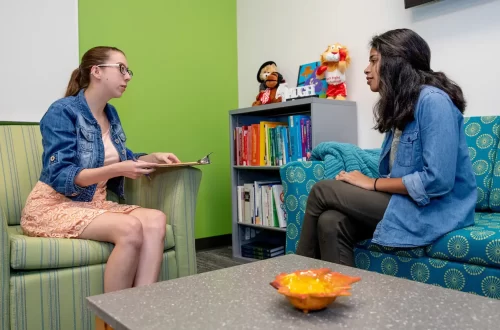The demand for mental health support and guidance has significantly increased, creating a growing need for trained counsellors. Online counselling courses have emerged as a highly accessible and flexible option for individuals looking to enter this compassionate field, enhance their existing skills, or even just gain a deeper understanding of human psychology for personal growth.
These online programs cater to a diverse audience, from fresh graduates and working professionals seeking a career change to teachers, HR professionals, social workers, and even parents who wish to develop better communication and support skills.
Types of Online Counselling Courses Available:
Online counselling courses generally fall into a few categories, varying in depth, duration, and the level of qualification they offer:
1. Certificate Courses:
- Duration: Typically short-term, ranging from a few weeks to 3-6 months.
- Focus: Provide foundational knowledge in counselling, basic counselling skills (active listening, empathy, rapport building), ethical considerations, and an introduction to various psychological theories (e.g., CBT, psychoanalysis).
- Ideal For: Beginners, those exploring a career in counselling, or professionals in related fields (teachers, social workers, nurses) who want to integrate counselling skills into their existing roles.
- Examples:
- Certificate Course in Counselling Psychology: Many institutes offer this, covering fundamental principles, assessment, and therapeutic techniques. (e.g., Montfort College, IISDT)
- Certificate Course in Child Psychology / Child & Adolescent Counselling: These courses dive into understanding child development, common issues, and counselling techniques for younger age groups.
- Certificate Course in Lay Counselling: Offered by institutions like NIMHANS, focusing on basic counselling skills for non-professionals.
2. Diploma Programs:
- Duration: Longer than certificate courses, often 6 months to 1 year.
- Focus: Offer a more comprehensive understanding of counselling theories, advanced techniques, specific areas of counselling (e.g., family, career, mental health), and often include more in-depth case studies and practical application.
- Ideal For: Individuals serious about pursuing counselling as a profession or those looking for a more substantial qualification before potentially pursuing higher education.
- Examples:
- Diploma in Guidance and Counselling: Offered by institutes like IISDT, focusing on preparing individuals to become professional counsellors in various settings.
- Diploma in Counselling: Asian College of Teachers offers an advanced diploma covering theories, approaches, and techniques relevant to competent counselling professionals.
- Advanced Diploma in Counselling Skills: Enoma offers a 12-month online course, focusing on advanced techniques, various therapies, and practical training.
3. Postgraduate Diplomas & Specializations:
- Duration: Typically 1 year or more.
- Focus: These are more academically rigorous, delve deeply into counselling psychology, research, specific therapeutic modalities (e.g., Cognitive Behavioral Therapy, Narrative Therapy, Family Therapy), and often include supervised practical components (though online practicals can be simulated or involve case studies).
- Ideal For: Graduates with a background in psychology or related fields who want to specialize and potentially move towards becoming licensed therapists (though online degrees alone may not suffice for full licensure in all cases, practical internships are often required).
- Examples:
- IGNOU’s Diploma in Creative Writing in English (DCE): While primarily writing, it incorporates elements of self-reflection and understanding human behaviour which can be beneficial.
- Swayam (NPTEL): Offers university-level courses like “Counseling Psychology” from institutions like Savitribai Phule Pune University, often at undergraduate or postgraduate levels. These are academic courses that build theoretical foundations.
- International School of Counselling and Holistic Studies (ISCHS): Offers advanced diplomas that aim to build professional counsellor skills through live online sessions and practicals.
Key Aspects to Consider When Choosing an Online Course:
- Accreditation and Recognition: Check if the issuing body or institution is recognized by relevant psychological associations or educational boards. While many online certificates are valuable for skill development, formal recognition is crucial if you aim for a professional practice.
- Course Content and Syllabus: Ensure the curriculum covers essential counselling theories, practical skills, ethics, and areas relevant to your interest (e.g., child counselling, career counselling).
- Faculty Expertise: Look for courses taught by experienced and qualified psychologists, counsellors, or mental health professionals.
- Practical Components: Even in online formats, look for opportunities for simulated client sessions, role-playing, case studies, assignments that require application of skills, and potentially live interactive sessions.
- Mode of Delivery: Is it self-paced, or are there live classes? Does it include video lectures, reading materials, forums, or quizzes?
- Support and Feedback: Does the course offer tutor support, peer interaction, or personalized feedback on assignments?
- Cost and Duration: Balance the course fee with the value and depth of the program, and ensure the duration fits your schedule.
- Prerequisites: Some advanced courses may require a background in psychology or a related field.
Online counselling courses offer an excellent pathway for skill development and personal enrichment in the field of mental health. While they can provide a strong theoretical foundation and practical tools, aspiring professional counsellors should always research the specific licensing and professional body requirements to ensure their chosen qualification meets the necessary standards for practice.





